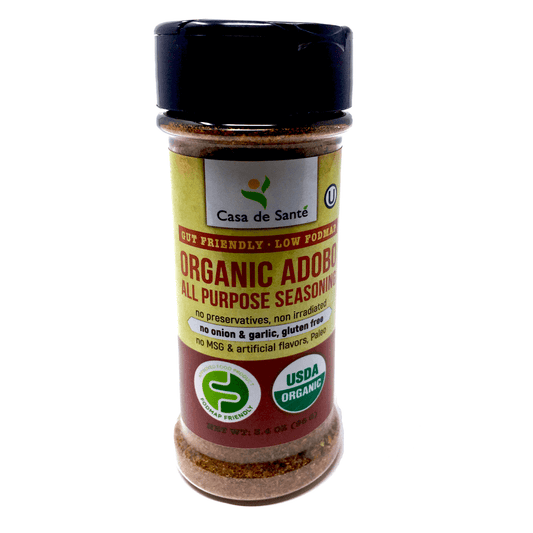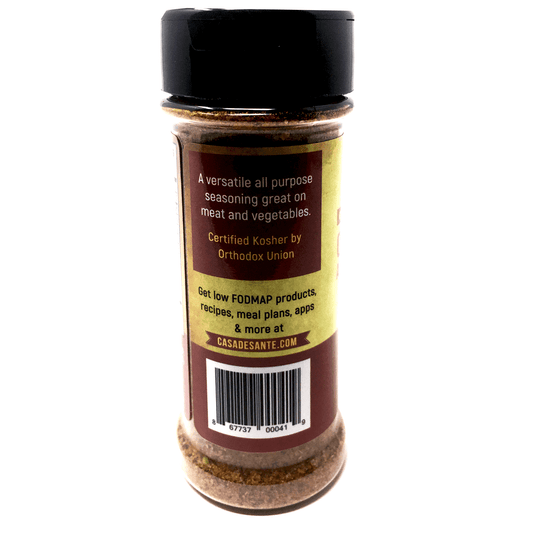Understanding and Discussing Histamine Intolerance with Your Doctor
Histamine intolerance is a condition that affects many people, yet it is often misunderstood and misdiagnosed. If you suspect you might have histamine intolerance, it's important to discuss it with your doctor to receive an accurate diagnosis and appropriate treatment. In this article, we will explore the different aspects of histamine intolerance and provide you with the knowledge to effectively communicate with your doctor about this condition.
Communicating Histamine Intolerance to Your Doctor
When discussing histamine intolerance with your doctor, it is essential to clearly communicate your symptoms and concerns. Begin by explaining that you suspect histamine intolerance might be the underlying cause of your symptoms. It may be helpful to familiarize yourself with the role of histamine receptors in the body to aid your discussion.
Understanding the Role of Histamine Receptors in Your Body
Histamine receptors are protein molecules found on the surface of cells in your body. These receptors are responsible for the effects of histamine, a chemical produced by your body's immune system. Histamine plays a crucial role in various physiological processes, including immune response, inflammation, and regulating stomach acid production.
There are four main types of histamine receptors, aptly named H1, H2, H3, and H4. Each receptor performs different functions in different areas of the body. For example, H1 receptors are primarily involved in allergy symptoms, such as itching, sneezing, and watery eyes, while H2 receptors regulate stomach acid production.
When there is an excess of histamine or an inability to properly break it down, the body can exhibit various symptoms associated with histamine intolerance.
Exploring the Science Behind Histamine Intolerance
Histamine intolerance occurs when your body is unable to break down histamine efficiently. This can be due to a deficiency in the enzyme diamine oxidase (DAO), which is responsible for breaking down histamine in the gut.
Common symptoms of histamine intolerance include headaches, nasal congestion, gastrointestinal issues, skin rashes, and fatigue. These symptoms can often resemble those of other conditions, making it crucial to communicate your experiences thoroughly with your doctor.
It is important to note that histamine intolerance is different from a true allergic reaction, such as anaphylaxis. While both involve histamine, histamine intolerance is typically a non-life-threatening condition where symptoms arise due to an accumulation of histamine in the body.
When discussing your symptoms with your doctor, it is important to provide a detailed account of your experiences. For example, if you experience headaches, describe the frequency, intensity, and any triggers that you have noticed. If you have gastrointestinal issues, explain the specific symptoms you are experiencing, such as bloating, stomach pain, or diarrhea.
Additionally, it can be helpful to keep a symptom diary leading up to your appointment. This diary should include information about your diet, activities, and any medications or supplements you are taking. By documenting your daily experiences, you can provide your doctor with a comprehensive overview of your symptoms and potential triggers.
During your discussion, don't hesitate to ask questions and seek clarification. It is important to have a clear understanding of your condition and the potential treatment options available. Your doctor may recommend dietary changes, such as following a low-histamine diet, or prescribe medications to help manage your symptoms.
Remember, effective communication with your doctor is key to receiving the appropriate care and treatment for your histamine intolerance. By providing detailed information about your symptoms and concerns, you can work together to develop a plan that will help you manage and improve your quality of life.
Beyond Medications: Alternative Approaches to High Histamine Levels
While medications can play a role in managing histamine intolerance, there are also alternative approaches that can help reduce histamine levels and alleviate symptoms. It is important to discuss these options with your doctor to find the right approach for you.
Histamine intolerance can be a challenging condition to manage, but with the right strategies, it is possible to find relief and improve your quality of life. In addition to medications, there are several lifestyle modifications and alternative treatments that can be effective in managing histamine levels.
Effective Strategies for Managing Histamine Levels
1. Watch Your Diet: Certain foods are known to be high in histamine or trigger its release, worsening symptoms. It's beneficial to avoid or limit foods like fermented products, aged cheeses, alcohol, and processed meats. Instead, focus on fresh, whole foods.
When it comes to managing histamine intolerance, diet plays a crucial role. By being mindful of the foods you consume, you can minimize the intake of histamine-rich or histamine-releasing foods. Incorporating a variety of fresh fruits, vegetables, lean proteins, and whole grains into your diet can provide essential nutrients while reducing histamine levels in your body.
2. Support Gut Health: A healthy gut is essential for proper histamine breakdown. Probiotics and gut-healing supplements can help restore the balance of gut bacteria and improve histamine digestion.
The gut microbiome plays a significant role in histamine metabolism. By incorporating probiotics and gut-healing supplements into your daily regimen, you can support the growth of beneficial bacteria in your gut, which aids in the breakdown and elimination of histamine. Additionally, consuming foods rich in fiber, such as fruits, vegetables, and whole grains, can promote a healthy gut environment.
3. Consider DAO Supplements: DAO supplements can help compensate for the deficiency in the enzyme responsible for breaking down histamine. Talk to your doctor about the appropriate dosage for your specific needs.
Diamine oxidase (DAO) is the enzyme responsible for breaking down histamine in the body. In cases of histamine intolerance, there may be a deficiency of this enzyme. DAO supplements can help compensate for this deficiency and aid in the breakdown of histamine. It is important to work closely with your doctor to determine the appropriate dosage and monitor your response to the supplements.
4. Manage Stress: Stress can worsen histamine intolerance symptoms. Incorporate stress-reducing techniques into your daily routine, such as meditation, deep breathing exercises, and regular physical activity.
Stress can have a significant impact on histamine levels in the body. When you are stressed, your body releases more histamine, which can exacerbate symptoms of histamine intolerance. By incorporating stress-reducing techniques into your daily routine, such as meditation, deep breathing exercises, and regular physical activity, you can help manage stress levels and minimize the impact on histamine intolerance.
Remember, it's crucial to work closely with your doctor to develop a personalized treatment plan for managing histamine intolerance. By effectively communicating your symptoms, concerns, and understanding the science behind histamine intolerance, you can navigate this condition with confidence and find relief from your symptoms.
With a comprehensive approach that combines medications, dietary modifications, gut health support, and stress management, you can take control of your histamine intolerance and lead a fulfilling life. By exploring alternative approaches and finding what works best for you, you can minimize symptoms and improve your overall well-being.
























